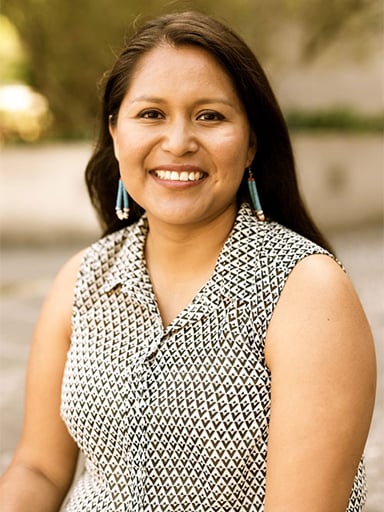By its definition, science is the systematic knowledge gained through repeated observations of the world around us. And, as history indicates, the first pioneers of scientists were Indigenous people, whose contributions in modern science must not be overlooked.
In the first special issue dedicated to Indigenous science, released today in Human Biology, guest co-editors Katrina Claw, PhD, a Diné (Navajo) geneticist at the University of Colorado Anschutz Medical Campus, and Krystal Tsosie, MPH, MA, Diné (Navajo) geneticist at Vanderbilt University, highlight and advance research that incorporates Indigenous approaches and worldviews in the sciences.
“In almost every scientific discipline throughout history, Indigenous people have contributed to our physical and biological understanding and have developed technologies that benefit all. Imagine, then, how science today could be advanced if we empowered Indigenous approaches to the level of Western science,” state Claw and Tsosie in the journal’s introduction.
Katrina Claw
By integrating both Indigenous and Western epistemologies, the authors hope to add to the foundational knowledge and methods that can advance global understandings of health, medicine, and biology at all intersections. Claw and Tsosie posit that Indigenous science is grounded in traditional knowledge, but the word “traditional” creates a dichotomy with “modern” science.
'Knowledge that endures'
“Perhaps we should instead think of ‘traditional knowledge’ as knowledge that endures, or has been repeatedly tested and remained substantiated, as data points representing countless trials over time. Maybe scientists should reevaluate their perceptions of the word ‘traditional’ and instead acknowledge and listen to expertise in Indigenous science,” assert the authors.
As one example, Claw and Tsosie argue that many biologist and conservationists now seek Indigenous input to provide solutions to climate change, deforestation, species extinction, and ecosystem degradation— problems that could be caused by an overreliance on Western science.
Human Biology is an international, peer-reviewed journal, and an Official Publication of the American Association of Anthropological Genetics.
“We are honored to publish this special issue on Indigenous Science and encourage future submissions to the journal from Indigneous scholars” said Ripan Malhi, editor of Human Biology. To make the issue widely accessible and broaden the readership, the entire issue will be made freely available through JSTOR and Project MUSE until the end of July.
Driving a science tradition
The special issue represents a variety of perspectives written primarily by Indigenous authors. Additionally, every stage of the peer-review process was guided by Indigenous researchers, including the authors, editors and reviewers. The publication is a culmination of the 2019 American Indian Science and Engineering Society National Conference session, held in October in Milwaukee, Wisconsin, titled “Indigenizing Science and Reasserting Indigeneity in Research,” which features contributions by some of the speakers at this session, building on efforts to integrate Indigenous knowledge into science and research.
A second special issue of Human Biology titled, “Indigenous Ecology”, will be published later this year. Claw and Tsosie hope more journals will recognize the importance of including Indigenous voices in research, and point to Nature Genetics, 2020 as another recent example.
“In an era that will welcome new Indigenous researchers into the academic and research space, we hope to continue an Indigenous science tradition that is driven by us, for us,” state Claw and Tsosie.
Human Biology, Indigenous Science Issue articles by subject and author include:
Indigenizing Science and Reasserting Indigeneity in Research
by Krystal S. Tsosie and Katrina G. Claw
An introduction to the journal’s special edition.
Methodology Matters: Designing a Pilot Study Guided by Indigenous Epistemologies
by Sandra A. Juutilainen, Melanie Jefffrey, and Suzanne Stewart
Raises issues stemming from mistrust and inadequacies of applying constructs of Western biomedical care in Indigenous communities.
Momentum and Longevity for Tribally Driven Health Equity Science: Evidence from the Gathering for Health Project
by Jessica H. L. Elm and Tina Handeland
Unpacks the processes by which researchers develop culturally congruent interventions through meaningful tribal involvement and ethical community-oriented approaches using the Gathering for Health project, an ongoing study to understand the physical, mental, and social health impacts of type II diabetes for tribal members of Great Lakes region.
“Of Course, Data Can Never Fully Represent Reality”: Assessing the Relationship between “Indigenous Data” and “Indigenous Knowledge,” “Traditional Ecological Knowledge,” and “Traditional Knowledge” Duarte et al.
by Marisa Elena Duarte, Morgan VigilHayes, Sandra Littletree, and Miranda Belarde-Lewis
Indigenous expressions of relationality could enrich the understanding of systems-based approaches and produce new conceptual frameworks and methodologies within an Indigenous context.
Islands as Laboratories: Indigenous Knowledge and Gene Drives in the Pacific
by Riley I. Taitingfong
Demonstrates that the language surrounding the genetic engineering technology called gene drive is clouded in settler colonialism terms that recall a painful history of military experimentation on Indigenous lands and peoples.
Weaving the Strands of Life (Iiná Bitł’ool): History of Genetic Research Involving Navajo by Rene L. Begay, Nanibaa’ A. Garrison, Franklin Sage, Mark Bauer, Ursula Knoki Wilson, David H. Begay, Beverly Becenti Pigman, and Katrina G. Claw
An in-depth literature review of genetics research involving Diné (Navajo) people over the course of 93 years. A nuanced reading of Begay et al. reveals that a vast majority of studies included in their review are contributed by the Native Health Database, manually curated by an Indigenous researcher, which highlights the lack of historical knowledge that is solely relied on PubMed, Medline or similar archives.
Guest contributor: Article submitted by Holli Keyser, communications program manager.


.png)
.jpg)
